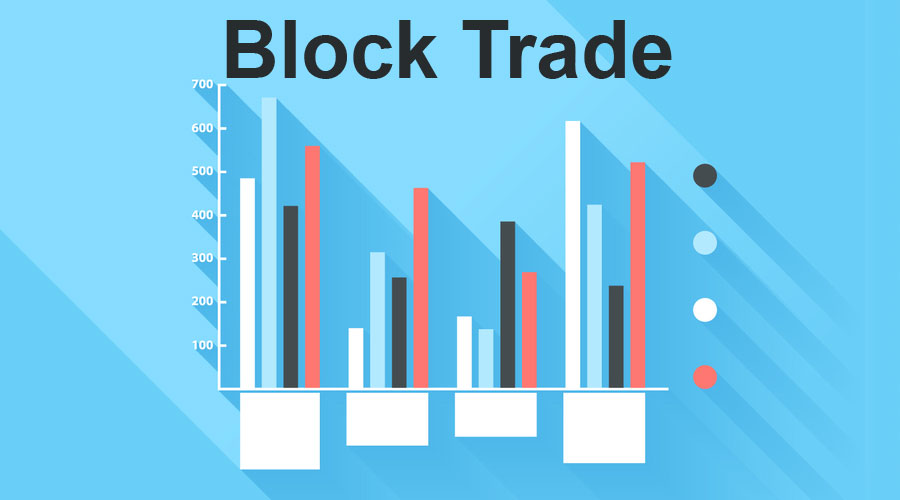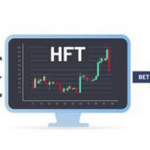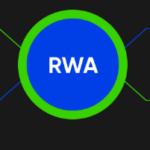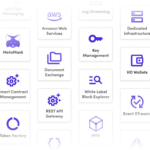I will discuss the What Is a Block Trade and How Does It Work. An example of block trade is an over the counter (OTC) deal.
These deals consist of buying and selling significant quantities of stock. Block deals attempt to reduce the impact on the security’s market price. Other large investors obtain partial block orders with the aim of reducing the overall average price for the stock purchase.
What is Block Trade?
A block trade is a big, privately negotiated deal of stock or bonds that is done outside of public exchanges to prevent movement in the market. Usually, these trades are done between large investors using broker or dealer services.

These trades help avoid high price changes which can happen when big orders are placed publicly. Block trades enable traders to price discreetly without attracting market attention thereby allowing both price stability and no abrupt movement in demand and supply.
How Does Block Trades Work

Initiation: A block trader investor either wants to buy or to sell a substantial amount of a security.
Broker Involvement: The block trade investor gets in touch with a broker or dealer to carry out the trade.
Finding a Counterparty: Another trader is also searched for by the broker. This trader has to be a big trader or institution who is willing to take the reverse position.
Private Negotiation: Public market participants negotiate pricing and quantities in private.
Execution: The trade, for which pre-trade price verification has been done, is completed off-exchange or in purpose-built execution venues called specialized trading venues.
Reporting: The block trade gets submitted to the regulators as well as a certain fraction of the general populace afterwards.
Market Impact: The order which is usually presented in public order books and is visible is avoided while trading in this fashion which helps lower the price explosion impact.
Purpose and Benefits of Block Trades
Miminization of Market Impact
Block trades protect large orders from causing undesirable price movements on public exchanges.
Privacy
Safeguard the interest of significant market players, enabling large transactions without significant notice to the public market.
Transaction Speed
Enables quick execution of trades for institutional buyers and sellers.
Access to Liquidity
Block trades present the ability to tap into large reserves of liquidity inaccessible in public markets.
Reduced Costs
Avoiding cost increases due to market reactions, lowered price expectations, and unfavorable price movement of securities.
Tailored Agreements
Gap in freely negotiated agreements by private parties enables custom-made terms to be set without public offer conditions.
Tips For Safe Block Trades
Use Trusted Brokers: Work with trustworthy brokers who specialize in dealing with big trades.
Verify Counterparties: Make sure the person on the other end of the trade is credible and not a default risk.
Understanding Regulations: Know the governing laws, both local and international, about block trades in order to comply.
Neogtiate Terms Clearly: Ensure there is no lack of understanding regarding pricing, quantity, and settlement during the discussion.
Keep trade details private: Execute the trade and minimize leakage to the market in order to reduce the impact.
Monitoring Market Conditions: Execute trades during periods of low market volatility.
Risks and Considerations

Price Risk
Even with private negotiation, the large trade size can still impact market prices once reported.
Compliance Risk
Compliance obligations highlight pre and post-trade reporting and transparency requirements.
Counterparty Risk
The risk that the other party may not honor the trade deal.
Execution Risk
The risk associated with finding an appropriate counterpart is particularly acute for extremely large trades.
Confidentiality Breach Risk
Information pertaining to the trade may enter the public domain leading to unintended market movements.
Pros & Cons
| Pros | Cons |
|---|---|
| Minimizes market price impact | Potential for information leakage |
| Enables discreet large transactions | Counterparty risk |
| Access to deep liquidity | Regulatory and reporting requirements |
| Faster execution for big orders | Finding a matching counterparty can be hard |
| Reduces transaction costs | Possible delayed market reaction |
Conclusion
To summarize, a block trade is a large, privately negotiated deal which enables institutional investors to buy or sell large quantities of securities without affecting the market.
Block trades are negotiated through brokers and off-exchange venues to reduce price impact and protect confidentiality. For understanding the conduct of major participants in the markets, knowing the mechanism of block trades is important in regards to their risk and liquidity management.









